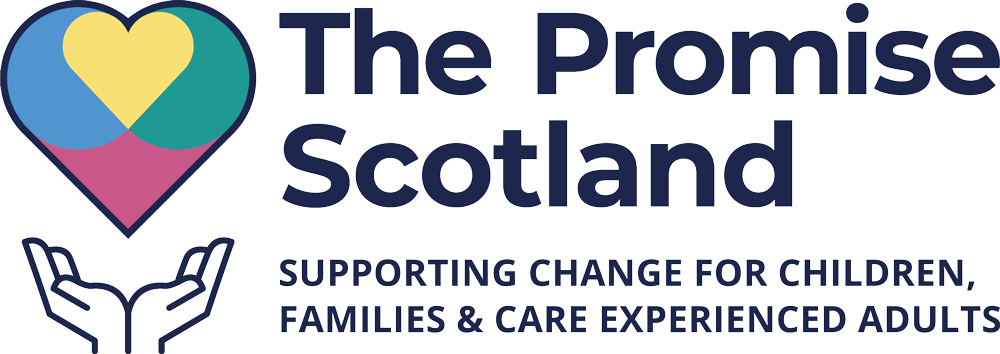How the Children (Care and Justice) (Scotland) Bill will help Scotland to #KeepThePromise

The Promise Scotland is pleased that the Children (Care and Justice) (Scotland) Bill has passed the final stage of parliamentary scrutiny.
It strongly supports the aim and ambition of the Bill, and the changes within it which will help Scotland to keep the promise.
Three areas where the Care and Justice Bill helps Scotland #KeepThePromise
Provisions which seek to end the inappropriate placement of 16- and 17-year-olds in young offenders institutions or prisons
The promise is clear that children who do need to have their liberty restricted must be cared for in environments which are:
- small,
- secure,
- safe, and
- trauma-informed.
These environments should uphold the totality of their rights, and restriction of liberty should only take place when other options have been fully explored.
Some of the provisions within this Bill respond to this conclusion , through looking to end the use of YOIs and prisons for all children aged under 18. The Promise Scotland is keen to make sure these provisions are commenced immediately.
They intend that any child who is to be deprived of their liberty will receive rights-based, psychological and trauma-informed responses. These would take place in environments which are age-appropriate and therapeutic— normally in secure accommodation.
Extended provisions of the Children’s Hearings System, to further uphold the rights of older children
The Children’s Hearings System is underpinned by the principle that children who engage in offending need care and protection, rather than punishment.
The promise says that this principle must be restated and understood across Scotland’s services.
This would allow more children in conflict with the law to be engaged with the Children’s Hearings System, and to be supported in a way which accords with the original Kilbrandon principles.
The Bill aligns with this conclusion by:
- proposing to change the age of referral to a children’s hearing from 16 years old to 18 years old and,
- removing statutory barriers to 16- and 17-year-olds being referred to the Principal Reporter.
- This change will extend to all under 18s— both those on welfare and criminal grounds.
Provisions so cross-border placements should only occur in exceptional circumstances
The promise is clear that accommodating children from outside of Scotland in care placements is a breach of their fundamental human rights— denying those children access to their family support networks and services.
Accommodating children from outside Scotland also skews the Scottish landscape. It means that there is a lack of strategic planning for children, so that children can be put in inappropriate settings if demand has spiked.
This Bill will seek to make any new care service providers tailor provision to Scotland’s particular needs. It will also amend the powers of the Care Inspectorate to have an increased role in relation to:
- the registration of care settings where cross-border children are accommodated,
- the regulation of these care settings, and
- their oversight.
Key areas need attention to ensure effective implementation
In order to ensure effective implementation of the Bill, particular attention must be paid to:
Supporting the workforce
Supporting the workforce and addressing recruitment and retention challenges, so that the workforce feels well equipped to uphold the rights of children and families and meet their needs.
Adequate investment and resourcing
Adequate investment and resourcing, particularly with respect to:
- community support,
- mental health support, and
- family support preventative services.
Sequencing and prioritising
Sequencing and prioritising the provisions within the Bill so that:
- they are aligned with other measures to help keep the promise, and
- they don’t overwhelm the workforce.
“A significant step forward in Scotland’s efforts to keep the promise”
Fraser McKinlay, Chief Executive of The Promise Scotland said:
“The Promise Scotland is pleased that the Children (Care and Justice) (Scotland) Bill has passed the final stage of parliamentary scrutiny.
“These important changes represent a significant step forward in Scotland’s efforts to keep the promise by 2030. The promise is clear that young offenders institutions and prisons are inappropriate places for children. It is also clear that Scotland's approach to care and protection must be based on early help and support alongside a more progressive, rights-based approach to youth justice that builds on the Kilbrandon principles. The changes contained within this Bill will realise these calls to action and uphold children's rights, including by increasing access to Scotland's unique, welfare-based Children's Hearings System.
"Effective implementation of the Bill will be critical. It must be accompanied by significant support for the workforce, along with adequate investment and resourcing. Clear consideration needs to be given to how these changes are sequenced and prioritised alongside other measures to improve the lives and uphold the rights of children, families and care experienced adults in Scotland.”
